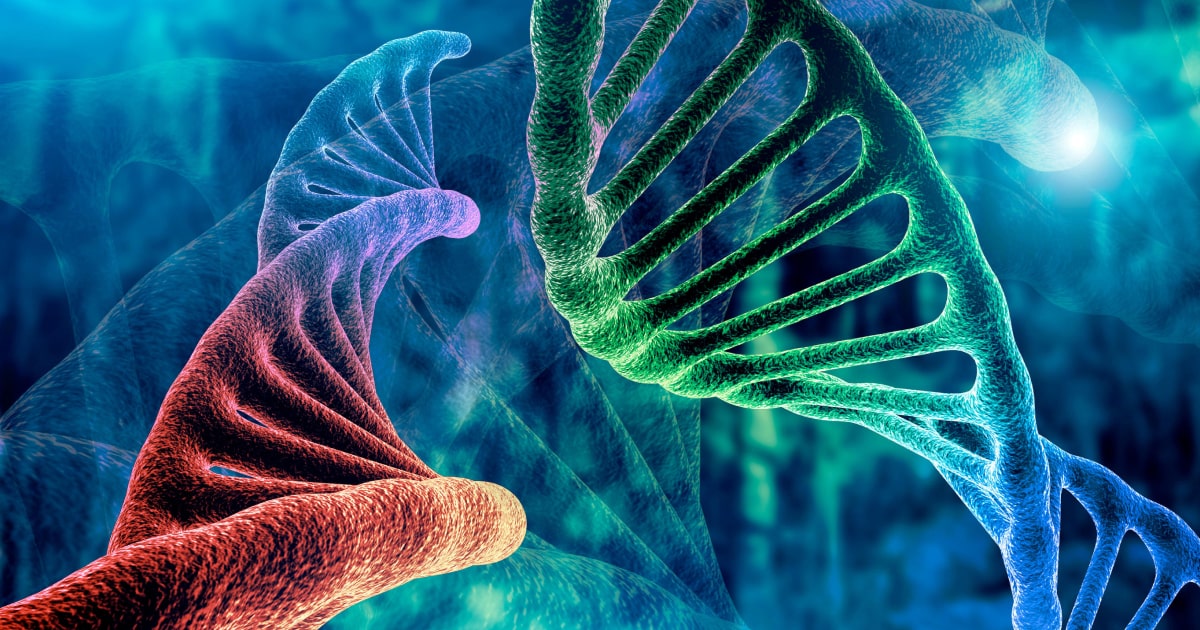
Expert Reviewed By: Dr. Brandon Colby MD
In the intricate world of genetics, there lies a complex tapestry of codes that dictate how we grow, develop, and function. Within this tapestry, certain threads can sometimes be misplaced, leading to rare genetic neurological disorders such as developmental delay with autism spectrum disorder and gait instability. This condition is a multifaceted challenge, characterized by developmental delays, autism spectrum traits, gait instability, intellectual disabilities, and variable behavioral patterns. As science advances, genetic testing emerges as a beacon of hope, providing insights and potential pathways for understanding and managing such disorders.
Unraveling the Genetic Threads of Developmental Delay with Autism Spectrum Disorder and Gait Instability
Developmental delay with autism spectrum disorder and gait instability is not just a mouthful to say; it's a complex condition that affects various aspects of an individual's life. The disorder manifests early in childhood, with parents often noticing delays in reaching developmental milestones, atypical social interactions, and difficulties with coordination and movement.
Understanding the genetic underpinnings of this disorder is crucial. It allows for a more precise diagnosis, helps in predicting the course of the disorder, and can inform treatment decisions. This is where genetic testing comes into play, offering a window into the genetic anomalies that may be contributing to the condition.
The Role of Genetic Testing in Diagnosis
Genetic testing serves as a powerful tool in diagnosing developmental delay with autism spectrum disorder and gait instability. By analyzing an individual's DNA, healthcare providers can identify specific genetic mutations or variations that may be responsible for the disorder. This is particularly important given the rarity and complexity of the condition.
Through techniques such as whole-exome sequencing or chromosomal microarray analysis, genetic testing can pinpoint abnormalities that are not visible through standard clinical evaluations. This precision in diagnosis is invaluable, as it can confirm a suspected diagnosis and rule out other conditions with similar presentations.
Informing Treatment and Management Strategies
Once a genetic diagnosis is established, it opens up new avenues for treatment and management. While there may not be a cure for the genetic disorder itself, understanding the genetic basis can lead to more tailored interventions. For instance, knowing the specific genetic mutation involved can help healthcare providers anticipate potential complications or co-occurring conditions, allowing for proactive management.
Moreover, genetic testing can guide decisions regarding therapeutic approaches. For example, certain genetic findings may suggest a better response to specific medications or therapies, optimizing the care plan for the individual.
Supporting Families and Future Planning
For families, receiving a genetic diagnosis can provide a sense of clarity and direction. It helps in understanding the nature of the disorder, alleviating some of the uncertainties that come with managing a complex condition. Genetic testing can also offer insights into the likelihood of recurrence in future pregnancies, aiding in family planning decisions.
Furthermore, a genetic diagnosis can connect families with support networks and resources tailored to their specific needs. These connections can be invaluable, providing emotional support and practical advice from others who understand the challenges of living with a rare genetic disorder.
Contributing to Research and Advancements
Genetic testing not only benefits individuals and families but also contributes to the broader scientific community. Each genetic diagnosis adds to the collective understanding of developmental delay with autism spectrum disorder and gait instability. This accumulation of knowledge can drive research efforts, potentially leading to new discoveries and advancements in treatment.
Participation in genetic research studies can also offer families the opportunity to contribute to the development of new therapies or interventions, providing hope for future generations affected by similar disorders.
Conclusion
In the realm of rare genetic disorders, knowledge is power. Genetic testing provides a crucial piece of the puzzle, offering insights that can transform the approach to diagnosis, treatment, and support for individuals with developmental delay with autism spectrum disorder and gait instability. As science continues to advance, the potential for genetic testing to enhance our understanding and management of such complex conditions remains promising, bringing hope to affected individuals and their families.
For further reading on this topic, you can refer to the study available at this link.
About The Expert Reviewer
Dr. Brandon Colby MD is a US physician specializing in the personalized prevention of disease through the use of genomic technologies. He’s an expert in genetic testing, genetic analysis, and precision medicine. Dr. Colby is also the Founder of and the author of Outsmart Your Genes.
Dr. Colby holds an MD from the Mount Sinai School of Medicine, an MBA from Stanford University’s Graduate School of Business, and a degree in Genetics with Honors from the University of Michigan. He is an Affiliate Specialist of the American College of Medical Genetics and Genomics (ACMG), an Associate of the American College of Preventive Medicine (ACPM), and a member of the National Society of Genetic Counselors (NSGC)